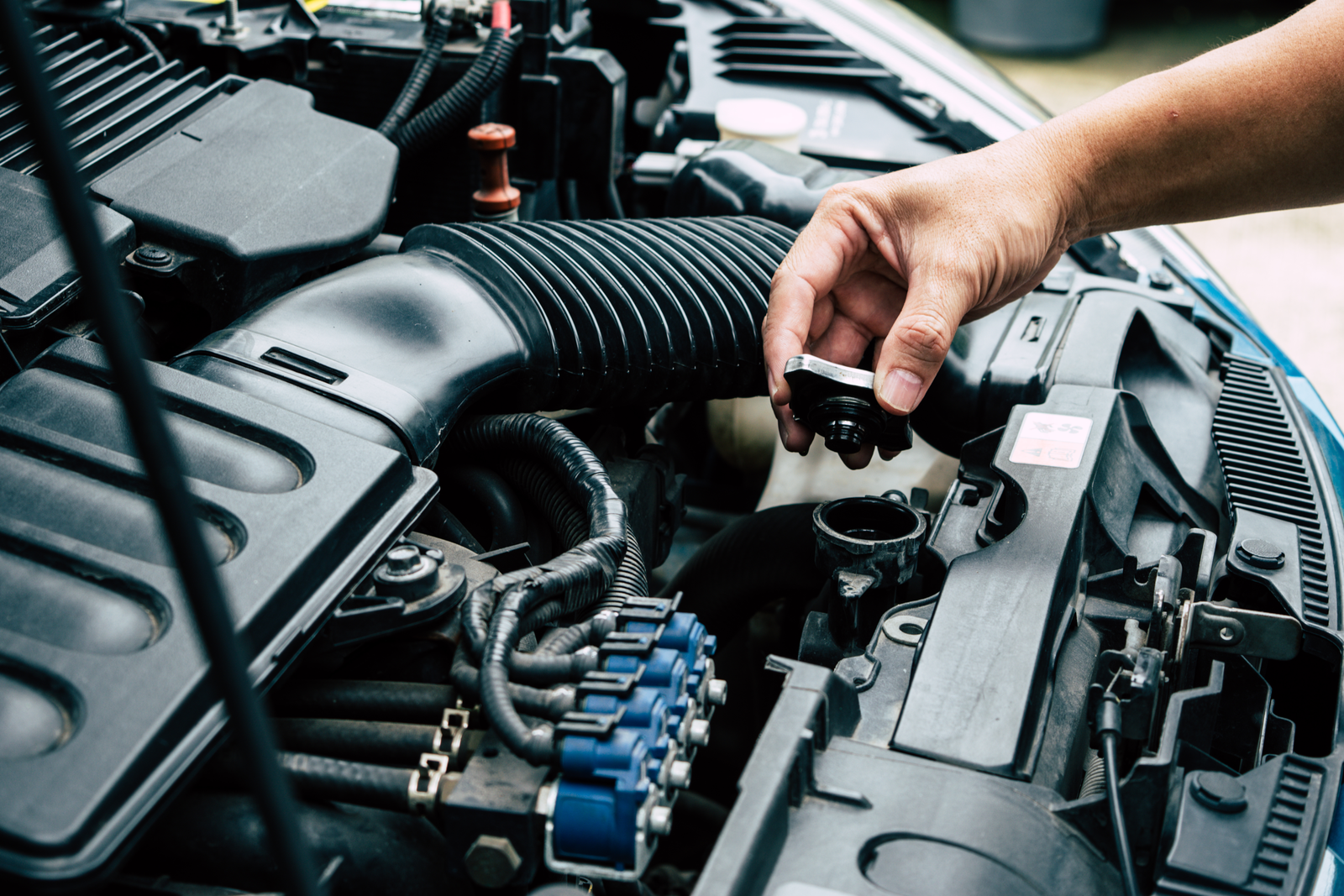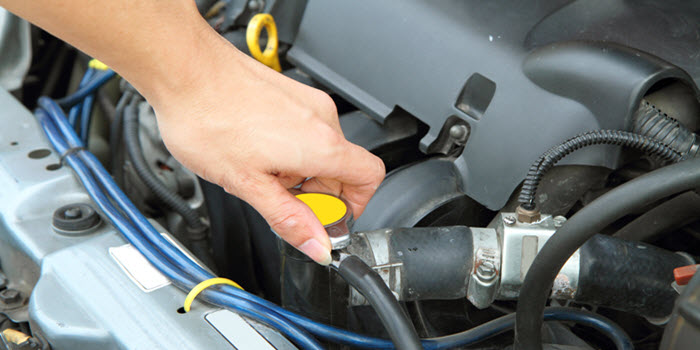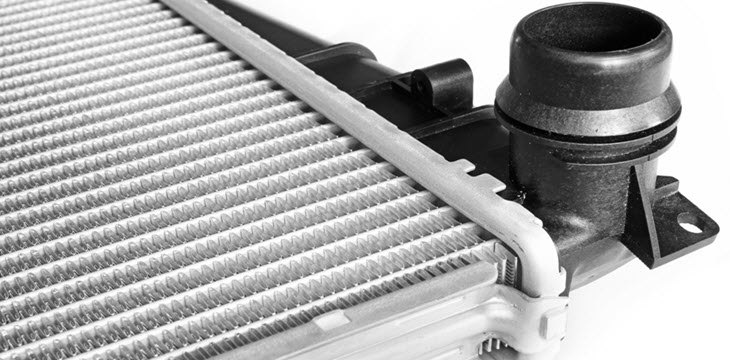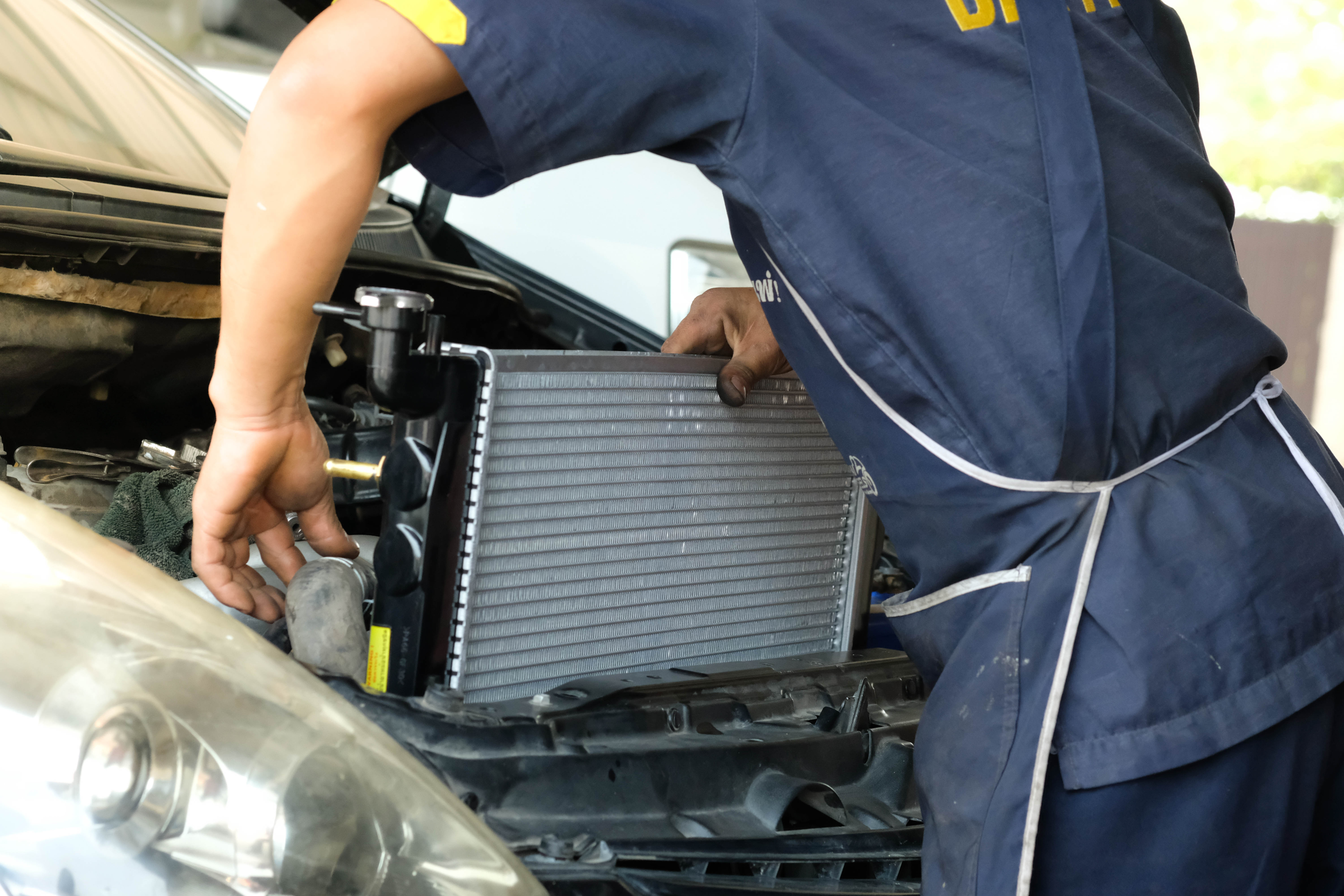
Car radiator issues often stem from leaks, clogs, or a faulty thermostat. Regular checks can prevent overheating and ensure optimal performance.
The radiator plays a crucial role in your vehicle’s cooling system. It dissipates heat generated by the engine, preventing overheating and potential damage. Over time, various factors can affect its efficiency, leading to issues such as leaks, blockages, or thermostat failures.
Identifying these problems early can save you from costly repairs and ensure your vehicle runs smoothly. Regular maintenance and inspection are essential to keep your radiator functioning properly. Understanding common symptoms of radiator problems can empower you to take action before issues escalate. This guide provides practical troubleshooting tips to help you maintain a healthy radiator and a reliable vehicle.
Introduction To Car Radiators
A car radiator is vital for engine cooling. It prevents overheating and maintains optimal temperature. Understanding how it works is essential for car maintenance.
The Role Of A Radiator
The radiator plays a crucial role in a vehicle’s cooling system. It helps circulate coolant, absorbing heat from the engine. Here are the main functions:
- Heat Dissipation: Removes heat from engine coolant.
- Coolant Circulation: Ensures proper flow of coolant.
- Temperature Regulation: Keeps engine temperature stable.
Without a functioning radiator, engines can overheat. This can lead to severe damage and expensive repairs.
Signs Of Radiator Problems
Identifying radiator issues early can save money. Look for these common signs:
- Overheating Engine: Engine temperature gauge reads high.
- Coolant Leaks: Puddles of coolant under the vehicle.
- Unusual Noises: Hissing or bubbling sounds from the radiator.
- Discolored Coolant: Rusty or dirty coolant indicates contamination.
- Warning Lights: Dashboard warning lights may illuminate.
Regular checks can prevent major issues. Pay attention to these signs to ensure your vehicle runs smoothly.

Credit: daseuropeanautohaus.com
Common Radiator Issues
Car radiators face various problems. Understanding these issues helps maintain your vehicle’s health. Here are some common radiator issues to watch for.
Leaks And Their Causes
Radiator leaks can lead to serious problems. They can cause coolant loss and overheating. Here are some common causes:
- Corrosion: Age and wear can create holes.
- Loose Hoses: Hoses may become loose over time.
- Cracks: Extreme temperatures can crack the radiator.
Check for leaks regularly. Look for puddles under your car. You might notice a sweet smell from coolant.
Overheating Engine
An overheating engine is a sign of radiator trouble. It can cause severe damage. Key reasons for overheating include:
- Low Coolant Levels: Check the coolant regularly.
- Blocked Radiator: Dirt and debris can block airflow.
- Faulty Thermostat: A malfunctioning thermostat can prevent cooling.
Keep an eye on your temperature gauge. Stop driving if it rises too high.
Clogged Radiator
A clogged radiator can restrict coolant flow. This can lead to overheating. Common causes of clogs include:
- Debris: Dust, leaves, and dirt can accumulate.
- Rust: Old coolant can cause rust buildup.
- Mineral Deposits: Hard water can leave deposits.
To prevent clogs, flush your radiator regularly. This helps maintain smooth operation.
Quick Fixes For Radiator Problems
Radiator issues can lead to serious car troubles. Quick fixes can save you time and money. Here are some effective methods to handle radiator problems easily.
Sealing Minor Leaks
Minor leaks can be a big headache. Here’s how to seal them:
- Use a radiator sealant: Pour it into the radiator.
- Check the hoses: Look for cracks or loose fittings.
- Inspect the radiator: Check for any visible leaks.
For small leaks, a sealant can work wonders. Follow the instructions on the product carefully.
Flushing The Radiator
A clogged radiator can cause overheating. Flushing it can restore its function. Here’s how:
- Turn off the engine and let it cool.
- Locate the drain valve at the bottom.
- Open the valve to drain old coolant.
- Run water through the radiator until clear.
- Close the valve and refill with fresh coolant.
Flushing should be done regularly. This keeps your radiator clean and efficient.
Preventing Overheating
Overheating can damage your engine. Here are tips to prevent it:
- Check coolant levels: Keep them at the right level.
- Inspect the thermostat: Ensure it works properly.
- Monitor the radiator fan: Ensure it runs smoothly.
- Look for debris: Clear any blockage around the radiator.
Regular maintenance is key. This prevents major problems down the road.
Diy Radiator Maintenance Tips
Taking care of your car’s radiator is vital. Regular maintenance helps avoid overheating. Follow these simple DIY tips for a healthy radiator.
Regular Coolant Checks
Coolant is crucial for your radiator’s efficiency. Check the coolant level often. Here’s how:
- Locate the coolant reservoir.
- Check the level against the markings.
- Top up with the recommended coolant if low.
Remember to do this when the engine is cool. This prevents burns. Change the coolant every two years to keep it effective.
Cleaning The Radiator Exterior
A clean radiator performs better. Dust and debris can block airflow. Here’s how to clean it:
- Turn off the engine and let it cool.
- Use a soft brush to remove dust.
- Spray water gently to wash away debris.
Avoid using high-pressure washers. They can damage the radiator fins.
Inspecting Hoses And Clamps
Hoses and clamps play a key role in coolant flow. Regularly inspect them for signs of wear:
| Item | What to Look For |
|---|---|
| Hoses | Cracks or bulges |
| Clamps | Rust or looseness |
Replace any damaged hoses or loose clamps immediately. This prevents leaks and overheating.
When To Seek Professional Help
Understanding when to seek professional help for your car radiator can save time and money. Some problems are easy to fix, while others require expert attention. Pay close attention to the signs your vehicle shows.
Complex Leaks
Finding a leak in your radiator can be tricky. Small leaks may be manageable, but complex leaks need professional help. Look for these signs:
- Frequent coolant refills
- Coolant pooling under the car
- Visible cracks or holes in the radiator
Complex leaks can lead to severe engine damage. Don’t ignore these symptoms. Getting a professional inspection is crucial.
Radiator Replacement
Sometimes, your radiator is beyond repair. Here are some indicators:
- Radiator rust or corrosion
- Repeated overheating issues
- Severe dents or damage
Replacing a radiator is a significant job. It requires special tools and knowledge. A professional will ensure proper installation and performance.
Thermostat Issues
A malfunctioning thermostat can cause serious problems. Symptoms include:
- Engine overheating
- Coolant temperature gauge fluctuations
- Unexpected coolant leaks
Replacing the thermostat might seem simple. However, incorrect installation can cause further issues. Seek a professional for reliable service.

Credit: daseuropeanautohaus.com
Tools And Supplies For Radiator Repair
Radiator repair requires the right tools and supplies. Having everything ready makes the job easier. Below is a list of essential tools and recommended supplies.
Essential Tools
- Wrench Set: Necessary for removing bolts and nuts.
- Screwdriver Set: Use both flathead and Phillips for different screws.
- Pliers: Useful for gripping and twisting wires.
- Radiator Pressure Tester: Checks for leaks in the system.
- Hose Clamp Pliers: Helps in removing and installing hose clamps.
- Drain Pan: Catches coolant during repairs.
Recommended Supplies
| Supply | Purpose |
|---|---|
| Coolant | Essential for refilling after repairs. |
| Radiator Sealant | Helps seal minor leaks effectively. |
| Gasket Maker | Used for creating seals between joints. |
| Cleaning Solution | Removes dirt and debris from the radiator. |
| Protective Gloves | Keeps hands safe from chemicals and sharp edges. |
Gathering these tools and supplies will make radiator repairs smoother. Check your inventory before starting your work.
Preventing Future Radiator Problems
Taking steps to prevent radiator issues is crucial. Regular maintenance helps keep your vehicle running smoothly. Understanding common mistakes can save you time and money.
Routine Maintenance Schedule
Setting up a routine maintenance schedule is essential. Here are key tasks to include:
- Check coolant levels every month.
- Inspect radiator hoses for wear.
- Clean the radiator fins to ensure airflow.
- Flush the radiator every two years.
- Replace the thermostat as needed.
Use the following table to organize your maintenance tasks:
| Task | Frequency |
|---|---|
| Check coolant levels | Monthly |
| Inspect hoses | Monthly |
| Clean radiator fins | Every 3 months |
| Flush radiator | Every 2 years |
| Replace thermostat | As needed |
Avoiding Common Mistakes
Common mistakes can lead to radiator problems. Here are some to avoid:
- Neglecting coolant changes: Old coolant loses its effectiveness.
- Ignoring leaks: Small leaks can turn into big problems.
- Using the wrong coolant: Always use the type specified by your vehicle’s manual.
- Overfilling the radiator: Too much coolant can cause pressure issues.
- Skipping inspections: Regular checks can spot problems early.
Follow these tips to keep your radiator in top shape. A little effort goes a long way in preventing costly repairs.

Credit: www.louisvilleinfiniti.com
Conclusion: Ensuring Radiator Health
Keeping your car’s radiator in good shape is vital. A healthy radiator prevents overheating. It also ensures your engine runs smoothly. Follow these tips to maintain radiator health.
Recap Of Key Tips
- Check coolant levels regularly to avoid leaks.
- Inspect hoses for cracks or wear.
- Flush the radiator every two years to remove debris.
- Monitor temperature gauges for overheating signs.
- Replace the thermostat as needed for proper function.
Importance Of Regular Check-ups
Regular check-ups keep your radiator running well. Schedule maintenance every 6 months. This helps catch small issues early.
| Check-Up Frequency | Key Actions |
|---|---|
| Every Month | Check coolant levels and inspect hoses. |
| Every 6 Months | Conduct a full radiator inspection. |
| Every 2 Years | Flush radiator and replace thermostat. |
Regular maintenance extends the life of your radiator. It helps avoid costly repairs. A well-maintained radiator ensures a smooth driving experience.
Frequently Asked Questions
What Are Common Signs Of Radiator Problems?
Common signs include overheating, coolant leaks, and unusual noises. You may also notice poor heating in the cabin. If you see steam or smell coolant, it’s time to investigate. Ignoring these symptoms can lead to more severe engine damage.
How Do I Check My Radiator For Leaks?
To check for leaks, inspect the radiator and hoses for visible signs of coolant. Look for puddles underneath your vehicle. You can also use a pressure tester to identify hidden leaks. Regular inspections can save you from costly repairs in the future.
What Causes A Car Radiator To Overheat?
A radiator can overheat due to low coolant levels, a blocked radiator, or a malfunctioning thermostat. A failed water pump can also contribute to overheating. Regular maintenance and coolant checks can help prevent these issues. Keep an eye on your temperature gauge while driving.
How Often Should I Flush My Radiator?
You should flush your radiator every two years or 30,000 miles. This helps remove built-up debris and prevents corrosion. Always check your vehicle’s manual for specific recommendations. Regular flushing improves cooling efficiency and extends the life of your radiator.
Conclusion
Troubleshooting your car radiator can save you time and money. Regular checks can prevent overheating and costly repairs. Understanding common issues helps you maintain your vehicle’s health. Stay proactive with radiator maintenance. A well-functioning radiator ensures a smoother ride and enhances your car’s longevity.
Keep your engine cool and perform regular inspections!






